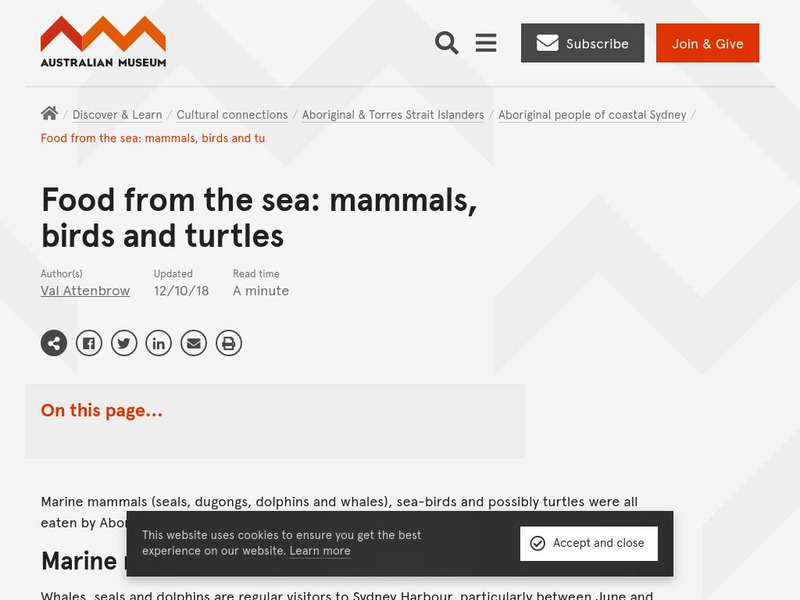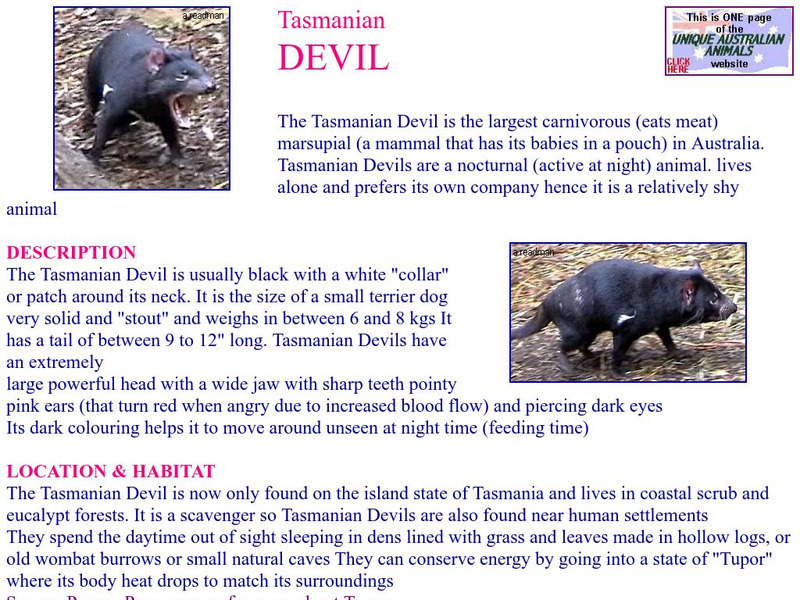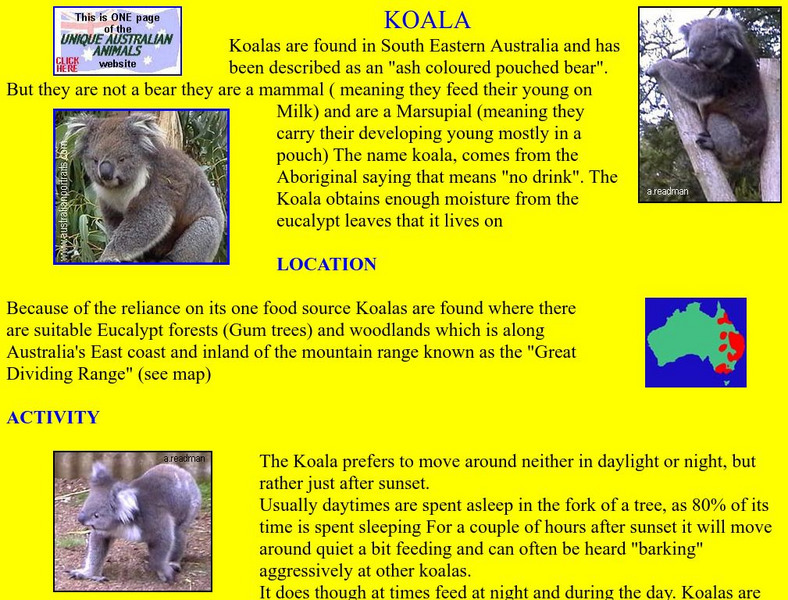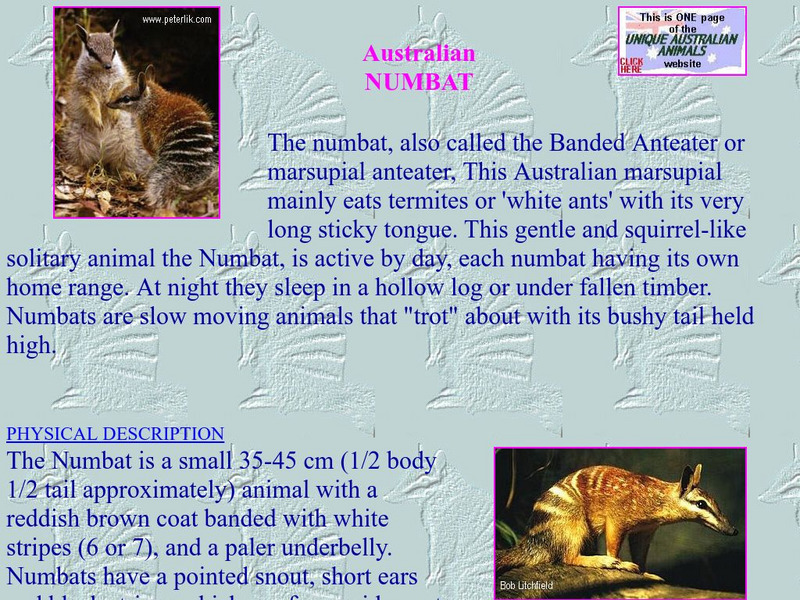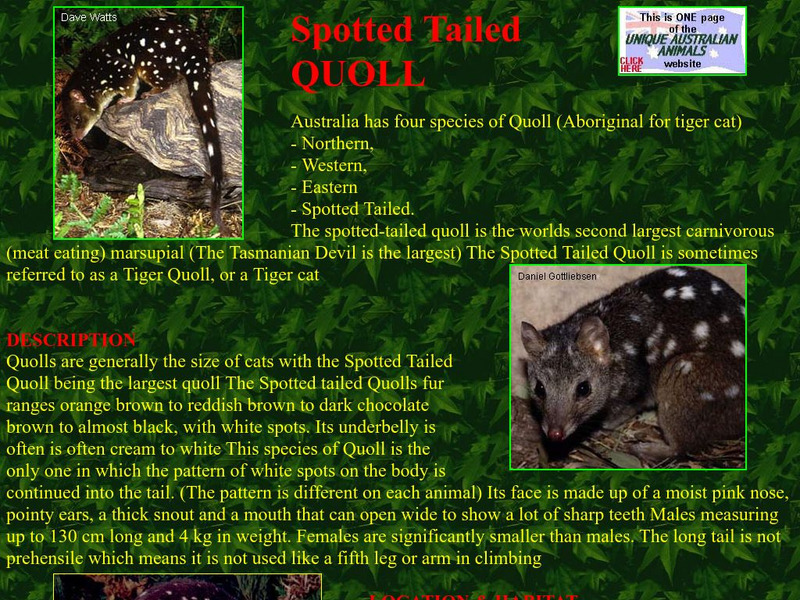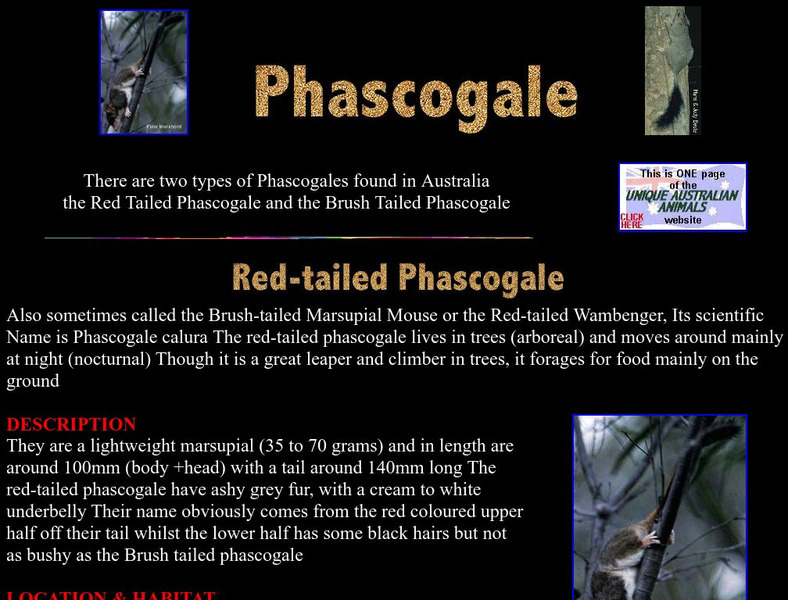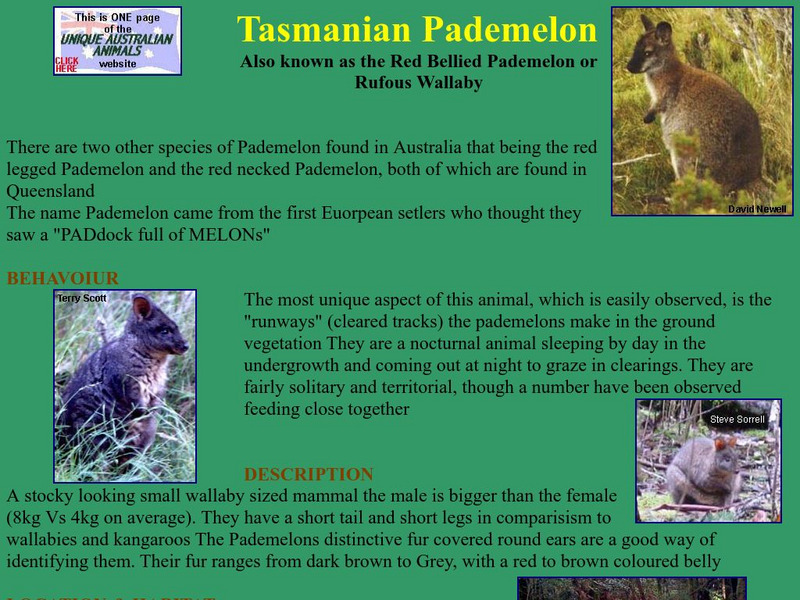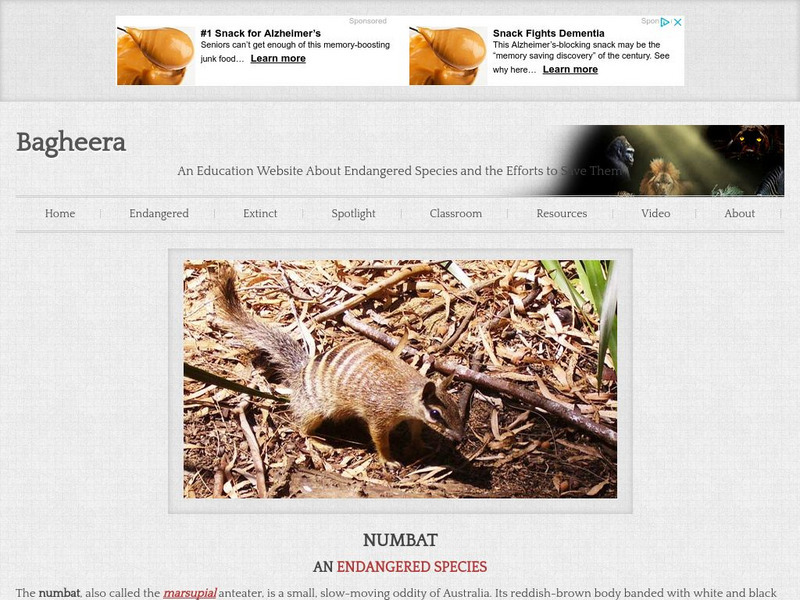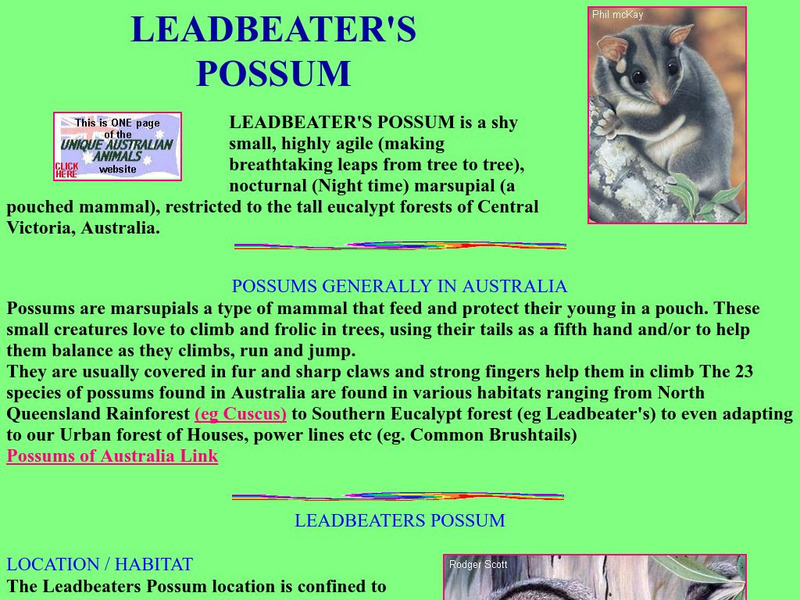Curated OER
Australian Mammals: Evolultionary Development as a Result of Geographic Isolation
Students examine the differences between monotremes, marsupials, and placental mammals and are able to contrast these organisms with other mammals. They learn about unique variation and the diversity of mammals located in Australia.
Curated OER
Australian Mammals: Evolutionary Development as a Result of Geographic Isolation
Students comprehend the difference between monotremes, marsupials, and placental mammals. They are able to compare and contrast these organisms (Australian mammals) with other mammals. Students are able to identify Australian mammals.
Curated OER
Quiz: Australian Animals
In this science worksheet, 3rd graders will focus on animals of Australia. Students will respond to nine true/false questions all pertaining to various animals which reside in Australia.
Curated OER
Australian Animals Internet Hunt
In this online/interactive instructional activity about animals in Australia, students read questions which include links to the internet, click on the links to discover the answers, and write the answers. Students write 21 answers....
Curated OER
Why Koala Has a Stumpy Tail
Second graders explore Australian folktales. For this folktales lesson, 2nd graders gain knowledge about Australia and it's animals by reading books and discussion. Students find the adjectives in the book and write what they describe....
Curated OER
G'Day Mate
Students understand that Australia is the smallest continent, locate it on a map and sing about the continents. In this Australia lesson, students listen to facts about Australia and complete a book about information they have learned.
Curated OER
How Many Animals?
Students use their math skills to develop estimates for the population of several animal species native to the Austrailian rainforest. It is a simulation that researchers at the Center for Rainforest Studies in Australia perform to...
Curated OER
Continents of the World
Second graders participate in a lesson about how people are the same, how people are different and where the continents are located. They go on a trip around the woworld to visit a country in each continent.
Curated OER
Quiz: Mind Your Mammals
In this science worksheet, 3rd graders respond to questions pertaining to mammals. Students answer ten questions consisting of true/false, and multiple choice.
Australian Museum
Australian Museum: Mammals of Sydney Harbour
Engaging site which covers some of the 40 species of mammals that live in Australia. Get quick interesting information on rodents, marsupials, bats and marine mammals that live in the Sydney Harbour area of Australia.
A-Z Animals
A Z Animals: Animal Facts: Pademelon (Thylogale)
Provides photographs and a fact card about the pademelon, an Australian marsupial. Discusses the different species, lifestyle, habitat, diet, predators, reproduction and development.
National Geographic Kids
National Geographic Kids: Animals: Koala
"Koalas are marsupials, related to kangaroos." Fun facts, video and audio clips make this a great National Geographic site for student research projects.
Unique Australian Animals
Unique Australian Animals: Tasmanian Devil
The Tasmanian devil is a real Australian marsupial mammal and nothing like the cartoon character as you will find out in this illustrated article.
Unique Australian Animals
Unique Australian Animals: Koala
Gather the facts about the adorable Australian marsupial, the Koala. This webpage provides a simple descriptive overview of the koala. It also discusses where they are found, their habitat, reproduction, activity, feeding and much more.
Australian Museum
Australian Museum: Mammals
Australian Museum Online has a collection of mammals including bats, platypus, and marsupials. Take a peek. Read about the monkey-faced bat, the mountain brushtail possum, and the tree kangaroo.
Unique Australian Animals
Unique Australian Animals: Australian Numbat
Here's a webpage from Unique Australian Animals that offers a simple overview on the characteristics and lifestyles of the Australian Numbat, also known as the Banded Anteater.
Unique Australian Animals
Unique Australian Animals: Spotted Tailed Quoll
The world's second largest carnivorous marsupial, the spotted tailed quoll, is no bigger than a domestic cat and found only in Australia.
Unique Australian Animals
Unique Australian Animals: Red Tailed Phascogale
Discover the Australian red-tailed phascogale, also called the brush-tailed marsupial mouse, in this illustrated article.
Unique Australian Animals
Unique Australian Animals: Tasmanian Pademelon
The Tasmanian Pademelon, one of Australia's marsupial mammals, is described and illustrated.
San Diego Zoo Global
San Diego Zoo: Koalas
This resource presents detailed information about the koala, including several photos and a video clip. [0:12]
Bagheera
Bagheera: Numbat
This site explores the unique characteristics and natural history of the numbat (marsupial anteater). Special focus is given to how and why this animal is endangered, and what conservation efforts are currently underway. Related learning...
Australian Broadcasting Corporation
Australian Broadcasting Corporation: Walking With Dinosaurs: Fact Files: Didelphodon
Read about the Didelphodon, a marsupial from the Mesozoic era and Cretaceous period. Learn what fossils have taught us about their habitat, diet, and senses, and view an animated image showing how this mammal may have moved.
Unique Australian Animals
Unique Australian Animals: Leadbeater's Possum
Unique Australian Animals profiles the marsupial mammal Leadbeater's possum with photos and text.
Unique Australian Animals
Unique Australian Animals: Sugar Glider
Sugar Glider, scientifically called Petaurus breviceps, is a small arboreal gliding possum, and a type of marsupial mammal.









